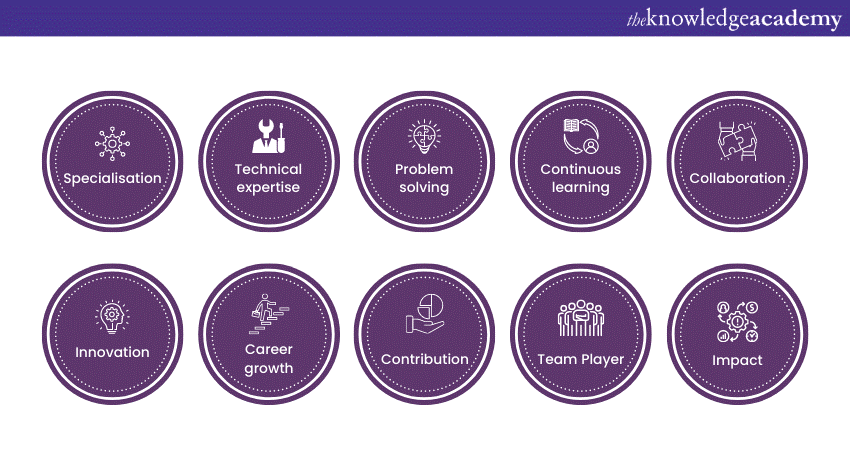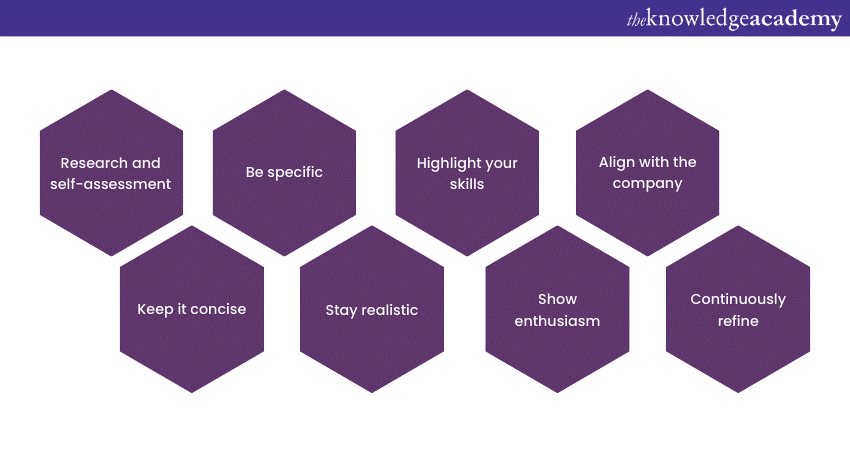We may not have the course you’re looking for. If you enquire or give us a call on 01344203999 and speak to our training experts, we may still be able to help with your training requirements.
Training Outcomes Within Your Budget!
We ensure quality, budget-alignment, and timely delivery by our expert instructors.

The importance of a strong Career Objective for an aspiring Java Developer is paramount. A well-defined objective that highlights their skills and aspirations increases their chances of landing their desired job in the competitive field of Java Development.
According to Indeed UK, a Java Developer is paid 68,815 GBP on average annually, with London and Leatherhead being the highest paying cities. In this blog, you will learn about a Java Developer’s Career Objectives and the key objectives that set them apart and propel them towards success. Read More.
Table of Contents
1) Understanding the role of a Java Developer
2) Importance of a clear Career Objective for a Java Developer
a) The Career Objective of a Java Developer
3) How to craft an effective Career Objective
4) Conclusion
Understanding the role of a Java Developer
A Java Developer’s responsibility is in the design, implementation, and maintenance of Java-based applications. They possess a strong understanding of programming concepts and utilise their expertise to create efficient and reliable software solutions.
Additionally, an important facet of a Java Developer’s career is a clearly set Career Objective, which serves as a guiding statement outlining their professional goals and aspirations within their desired industry. The objective helps them define their career path with focused effort and showcase their skills to prospective employers.
Furthermore, a well-crafted Career Objective increases their chances of landing their job of choice, which aligns them with better-suited opportunities tailored to their expertise. Now, it is vital for a Java Developer to be specific and highlight their technical proficiencies in Java programming, frameworks, and software development methodologies.
More importantly, they can optimise their visibility to employers by incorporating keywords such as "Java Developer objective" and "Career Objective for Java Developer" into their objective statement. The optimised visibility helps employers find their desired candidates possessing the required skills and professional aspirations.
Importance of a clear Career Objective for a Java Developer
A clear career objective is of utmost importance for a Java Developer because it serves as a roadmap that directs their professional journey in the industry. It outlines their goals, aspirations, and desired path within the Java Development field.
A well-defined career objective helps Java Developers showcase their skills and expertise to potential employers. It allows Java Developers to align themselves with job opportunities that match their aspirations and skills. Additionally, it helps them stand out from the competition by demonstrating their commitment to their chosen career path and their suitability for specific roles.
The Career Objective of a Java Developer
The career objective of a Java Developer can be summarised in the following points:

a) Specialisation: Java Developers can attain proficiency by focusing on mastering the Java programming language and related technologies.
b) Technical expertise: A Java Developer should acquire an in-depth knowledge of Java frameworks, databases, and software development methodologies.
c) Problem solving: A Java Developer can utilise their Java programming skills to solve complex problems and develop efficient and scalable software solutions.
d) Continuous learning: The Java Developer must keep up-to-date with the latest advancements in Java technology and embrace continuous learning to enhance skills.
e) Collaboration: The Java Developer should collaborate with cross-functional teams to develop and deploy Java-based applications that meet business requirements.
f) Innovation: A Java Developer must apply innovative thinking to develop creative solutions and optimise the performance of Java applications.
g) Career growth: A Java Developer should seek opportunities for career growth and progression in Java Development, aiming for senior roles and leadership positions.
h) Contribution: The Java Developer must contribute to the success of projects by delivering high-quality code, adhering to best practices, and ensuring the reliability and security of Java applications.
i) Team player: The Java Developer can become a valuable team member by collaborating effectively and communicating ideas and solutions clearly.
j) Impact: The Java Developer can make a significant impact in the Java Development field by creating innovative and robust software solutions that drive business growth and efficiency.
Develop your foundation of the Java language, by signing up for the Java Training courses now!
How to craft an effective Career Objective
Java Developers can write an effective career objective by considering the following steps:

a) Research and self-assessment: Begin by researching the requirements and expectations of Java Development roles. Assess your own skills, strengths, and career goals to determine the direction you want to take as a Java Developer.
b) Be specific: A Java Developer must clearly state their area of expertise and the type of Java Development role they are targeting. For example, they should mention their proficiency in specific Java frameworks, databases, or software development methodologies.
c) Highlight your skills: The Java Developer must showcase their technical proficiencies and relevant skills in their career objective. This can include knowledge of Java programming, experience with Java Development tools, or expertise in specific areas such as web development or mobile app development.
d) Align with the company: The Java Developer should tailor their objective to match the values, mission, and requirements of the company they are targeting. They must research the organisation and demonstrate how their skills and aspirations align with their goals.
e) Keep it concise: The Java Developer must aim for a brief and impactful statement that captures their career goals without being overly wordy. Keep it concise, focused, and easily readable.
f) Stay realistic: They must ensure that their objective aligns with your current skill set and experience level. More importantly, they must be realistic about their career goals and aspirations.
g) Show enthusiasm: Use action verbs and positive language to convey enthusiasm and engagement in your career objective. This helps to demonstrate your passion for Java Development.
h) Continuously refine: Review and refine your career objective regularly as your skills and goals evolve. Stay in touch with the trends in your desired industry and incorporate any relevant keywords or technologies to optimise your visibility to potential employers.
Learn the Java language and program websites and applications, by signing up for the Java Programming course now!
Conclusion
A well-crafted Career Objective is a vital component of a Java Developer's professional journey. It provides direction, clarity, and purpose, guiding their efforts and showcasing their skills to potential employers. Java Developers can increase their chances of securing their desired roles by being specific, highlighting relevant skills, and aligning with the company's requirements. More importantly, regularly updating the career objective to reflect evolving skills and goals ensures its relevance in the dynamic field of Java Development.
Acquire an in-depth understanding of Java concepts to develop your applications, by signing up for the Java Engineer Training course now!







 Top Rated Course
Top Rated Course




 If you wish to make any changes to your course, please
If you wish to make any changes to your course, please


